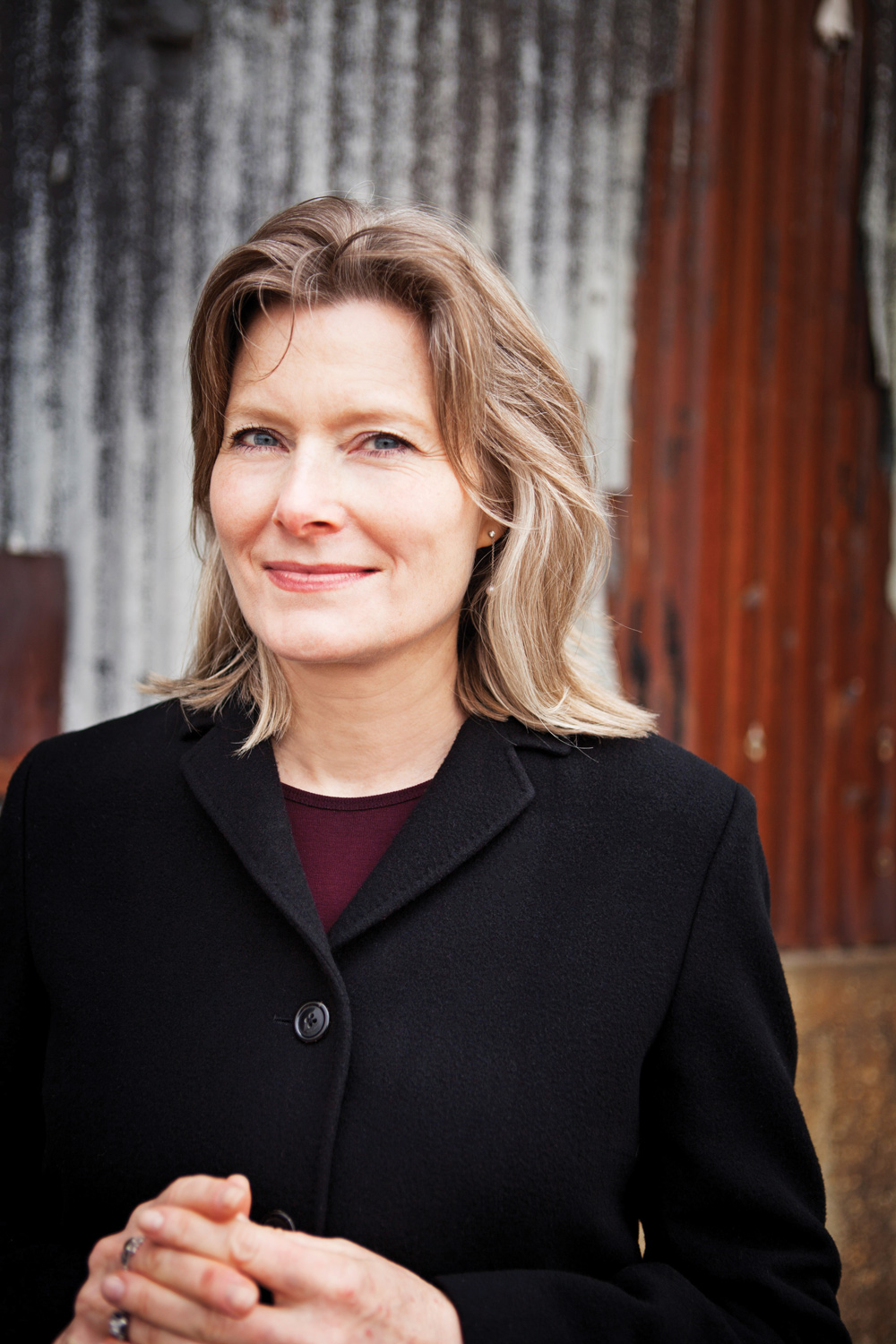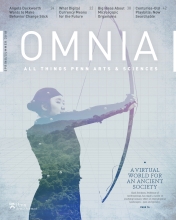Reading Is Fundamental
Jennifer Egan, C’85, sees fiction as a cultural artifact.
Jennifer Egan, C’85, won a Pulitzer Prize for 2011’s A Visit from the Goon Squad, a character-, time-, and space-hopping novel that she says “calls attention to narrative weirdness.” Most of the action in her latest novel, Manhattan Beach, takes place in New York City during World War II, where there is push and pull between terra firma and the underwater world of divers working at the Brooklyn Navy Yard. Here, Egan talks about the “thrill and exhilaration” of writing about a bygone era and how Penn shaped her as a writer and thinker.
When did you first feel like a writer?
I don't know if I ever have really reached that point, but I know that I decided to become a writer in the gap year that I took before Penn. I had applied to Penn thinking I wanted to be an archaeologist and then I went on a small archaeological dig. I learned that the nuts and bolts of archeology were not as I had imagined. To me, the fun of archeology was the idea of imagining these former lives and finding artifacts of them—but digging, scraping the earth with a scalpel, and finding minute shards of pottery didn't really make me feel as close to those lives as I had wanted to feel.
Later that year, I traveled to Europe. It was a long way from home, so it was really thrilling in some ways but also very isolating. It was very uncomfortable to be so alone. I think in that discomfort I felt the essentialness of writing for me and I arrived at Penn knowing that I wanted to try to be a writer. I have never wavered in that conviction.
What is your writing and research process like?
With fiction, I'm creating the world that I'm writing about and with journalism I'm trying to crystallize things about the real world that I've learned. With journalism, there's an enormous amount of research that usually consists of archival research and, most importantly, talking to live human beings. I use the same combination of approaches for fiction, but the process is geared more toward unlocking my unconscious.
Do you seek input from other writers?
I have a writing group and, in fact, the first writing workshop I ever took was at Penn with Professor Romulus Linney in my sophomore year. That workshop was revelatory in that I learned how important feedback is to me and how exciting and enlivening the process of giving feedback to other people is. I still remember stories from that workshop.
I'm a big believer in the process of just listening and creating feedback based on that experience rather than reading a manuscript. In Romulus’s workshop, we read aloud. For me, that’s such an important part of attending to the music of language, and it all began in that sophomore workshop.
Many reviews of your latest book, Manhattan Beach, have noted how different it is from your other fiction. Did you feel that it was a departure for you?
No, not at all. I knew that a lot of people would see it that way, because so many of my readers joined me with my previous novel, A Visit From the Goon Squad, which is structurally pretty wild and includes a 70-slide PowerPoint presentation. Those readers were reasonably expecting more of the same, but I never do that. I'm always reacting against the prior book in whatever I'm doing.
I see Manhattan Beach as a pretty crazy book in its own right though, because it's really such a mash up of genres. I was thinking about mystery novels, maritime novels, and the whole history of literature in the sea. I love the idea of combining different kinds of narratives.
What was the experience of writing Manhattan Beach like?
For five years, I was doing experiential research—interviewing people of all stripes. Longtime New Yorkers, women who had worked with the Brooklyn Navy Yard during World War II. I went to a reunion of Army divers and actually interviewed a World War II diver. I also read a lot of World War II-era fiction. Even bad fiction, it makes no difference. Bad can be just as helpful as good because it tells so much about the period. Fiction is such a crucial cultural document.
When I started writing, I wrote for a year and a half in a kind of blind way, just seeing what happened. I filled 27 legal pads with 1,400 pages of handwriting. You can imagine it's pretty much a catastrophe. After that sprawling first draft, I use outlines and I'm much more analytical, but in that initial outpouring I work instinctively.
How did your undergraduate experience shape you as a writer?
I can't overemphasize how important my time at Penn was to my development as a writer and as a thinker. My fiction is very idea-powered. I start with time and a place but I also usually start with some fairly abstract philosophical queries. I feel like Penn really shaped me as an analytical thinker. I got to Penn knowing that I wanted to write, and I felt that in every possible way Penn supported that wish.
What advice would you give to students interested in a career in writing?
The number one thing is to read. It has the advantage of being utterly entertaining but also making you smarter and more analytical, more empathetic. I'm also a big advocate for solitude. I think there are just times when it's important to get to know yourself and your own thoughts without an audience. Obviously writing is important, but to me that's actually secondary. Having something to write is what's really hard. What will give one the best chance of that are reading, thinking, and engaging in the world in a curious way.




